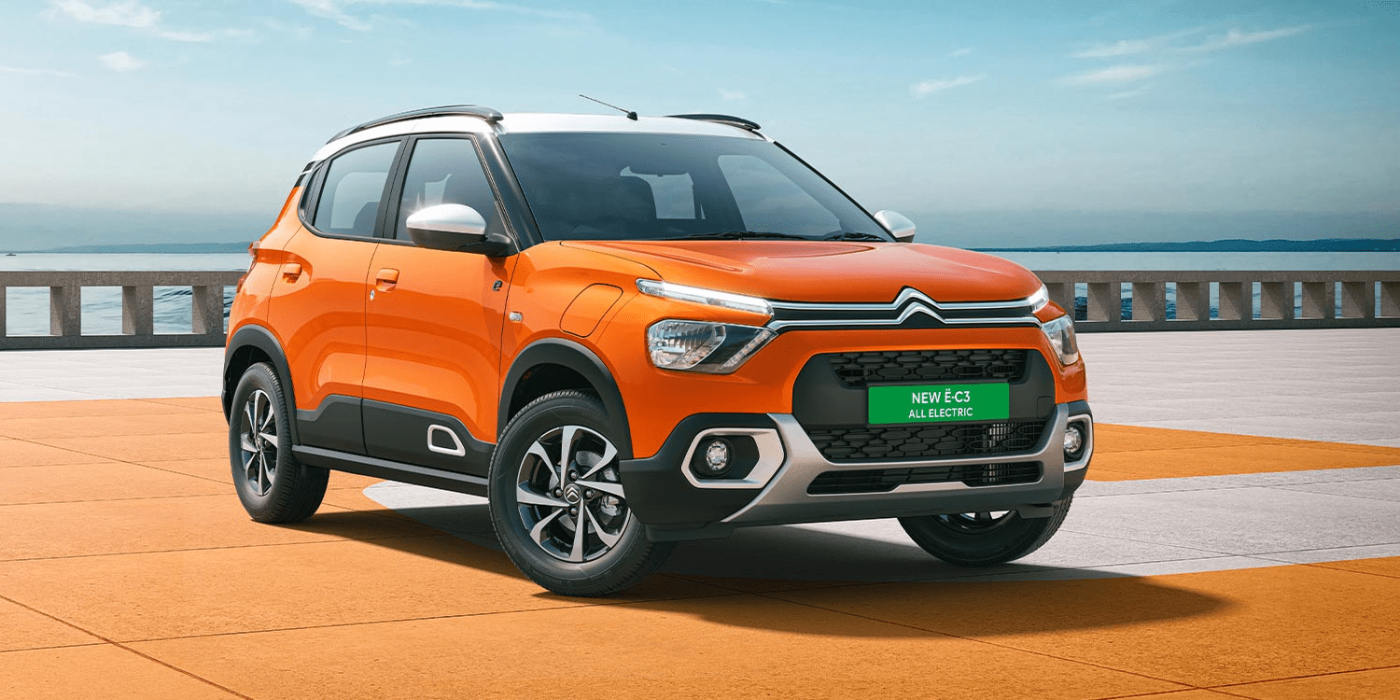Citroën presents electric car for India
Citroën has unveiled its first electric car to go on sale in the Indian market. The new ë-C3 is based on the ICE version, which the French brand launched in India last year, and will hit showrooms in February.
The Citroën ë-C3 is powered by a 29.2 kWh battery pack, offering a range of 320 km. The electric motor generates 42 kW and 143 Nm of peak torque. The hatchback has a top speed of 107 km/h, and it can do 0-60 km/h in 6.8 seconds. The car offers a claimed range of 320 km.
Charging is possible on both AC and DC outlets, charging from 10 to 80 per cent in 57 minutes on a fast charger, while a regular 15-ampere outlet (3.3 kW AC) takes 10 hours and 30 minutes to charge from 10 to 100 per cent.
Pre-launch bookings have already been opened ahead of the Citroën ë-C3 hitting showrooms in India next month.
In terms of local target markets, the Citroën E-C3 is aiming to rival the likes of the Tata Tiago EV. Citroën is expected to introduce its new small EV in the price range of Rs 8 to 13 lakhs (about €9,007 to €14,637) in India. To compare, the Tiago EV launched at a base price of 849,000 rupees, equivalent to around 10,700 euros, with a 19.2 kWh battery and 250 km range.
Citroën had announced the move last year but had not elaborated on which vehicle it would be marketing in India. At the time, the company announced plans to ramp up its dealership network in India, as well as expand its vehicle offers, as only the C5 Aircross had been available on the Indian market in limited numbers.
Timing for the vehicle launch is favourable as other OEMs are slower to target the difficult (low price) market: The local Maruti’s first EV is only to release in 2025, while Hyundai is looking at a market launch in two to three years. Mahindra also announced plans to gear up electric vehicle production in cooperation with Volkswagen. This would be part of Mahindra’s plan to launch 16 electric vehicles by 2027. Tata Motors is still ramping up EV production, although they already have an electric SUV Tigor and the above-mentioned Tiago EV on the market.
The only thing missing now is a major ramp-up of charging infrastructure in India, however, that is also underway, as Tata Power announced around two weeks ago with plans to build 25,000 chargers across the nation over the next five years.





0 Comments